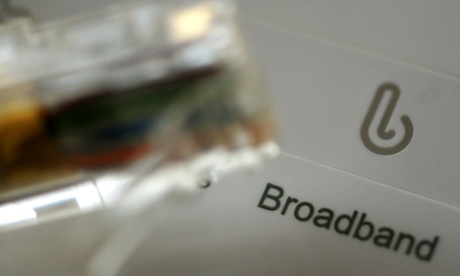This article states that taking individuals to court over piracy isn't doing much and so in 2014 there are going to be attempts to follow the revenue generated. That means focusing their efforts on piracy sites, through three main tactics: pressuring search engines to remove links to infringing files and demote piracy sites in their rankings; forcing ISPs to block their customers from accessing those sites; and trying to squeeze their flow of advertising revenues.
An Infringing Website List (IWL for short) was created to gather the URLs of piracy sites and persuade brands, media agencies and ad networks to ensure they're not advertising on them.
The IWL is the result of a three-month pilot in 2013 backed by a host of creative industry bodies – the BPI and IFPI from the music industry, FACT from software, The Publishers Association from books – as well as advertising industry bodies the IAB, ISBA and IPA.
"Disrupting the money unlawful websites make from advertising could make a real difference to the fight against copyright infringement," said creative industries minister Ed Vaizey this week.
Not everyone agrees that it's such an excellent thing, however. The Pirate Party UK has criticised the initiative, pointing out that the IWL will not be made public, and that even if website owners find they are on it, it is unclear how they can apply to be removed.
I believe that it is a better and more effective way of dealing with piracy however, it won't prevent people trying to download things for free, they may attempt to go around these tactics and won't be prosecuted as everyones focus would mainly be on the sites as a whole and their owners who create the filesharing sites.
http://www.theguardian.com/technology/2014/apr/01/uk-wifi-routers-internet-attacks
Millions of routers worldwide vulnerable to digital criminals, 800,000 of which are in the UK, with potential for serious disruption
Millions of routers worldwide vulnerable to digital criminals, 800,000 of which are in the UK, with potential for serious disruption

As many as 24m routers across the world can be used by cybercriminals to launch massive attacks on internet infrastructure, while simultaneously disrupting home connections and costing communications companies dearly.
Research shown exclusively to the Guardian showed 800,000 of those routers are based in the UK, opening up the potential for serious disruption of the country’s data networks.
Over a single day this year, Nominum said it recorded 5bn requests for such domains. This produced 12 terabytes of traffic, which is a significant amount of data flying around the internet solely for malicious means.
Nominum said over a single day in February more than 5.3m of the routers running the feature were used to generate attack traffic in Asia. An attack in January used up 70% of an internet providers Domain Name System servers.
No comments:
Post a Comment